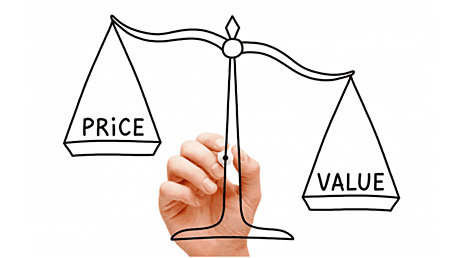Valuation of Business or Shares

Get a fair value valuation done for your business with top professionals.
It usually takes 3 to 5 working days.
- Valuation of Business
- Valuation of Shares
- Valuation of Net Worth
- Valuation of Goodwill
- Any business entity or individual
- Purchase of Plan
- Expert Assigned
- Share requirements with Expert
- Upload documents on vault
- First draft prepared
- Review the draft in two cycles
- Download your final copy
- The documents required to be shared will depend upon the agreement/contract/notice to be drafted and shall be communicated on having an understanding of your case by our experts.
Types of Valuation Report in India
Business Valuation Explained
The business valuation process of valuing a business is usually applied when an owner wants to sell his business or merge with another business. Nowadays, valuation is not an uncommon process in entities, whether a start-up or a large corporation, and has great importance in business formation, dispute resolutions, mergers, acquisitions, attaining credit from financial institutions, and tax planning. In addition, a business owner requires an accurate value to analyze potential growth and opportunity costs while planning for future expansion and eventual transition.
The valuation assignment must provide the framework and reason for the valuation. Business valuation uses standards of practice known as Business Valuation Standards (BVS). According to IRS valuation guidelines, successfully completing a valuation assignment includes defining the valuation issue, planning, identifying relevant factors, documenting specific information, and analyzing the relevant information.
While doing the valuation, the analyst or the professional considers the purpose and the underlying objectives of the valuation. The fundamental factors, such as the business background, products, services, sector-wise growth, and economic and political situations, are considered. A qualified professional may primarily analyze the company’s financial statements, capital structure, transactions over the past years, industry ratios, and other quantitative and qualitative data.
The basic valuation process can involve the valuations of tangible assets and intangible assets. It helps companies in strategic planning and other managerial decision-making processes. The valuation technique is useful when mere estimates are not acceptable. In addition, the quantitative value obtained through the valuation process is a boon in many circumstances. For example, the quantitative number can strengthen the negotiation process while selling a company.
Methods
The following are the general methods of business valuation that can be applied for large or small business valuations.
- Income approach: The income-approach techniques are used to determine the value of a firm based on the revenue it is anticipated to produce in the future. In other words, the present value of a company’s expected profits or cash flowsdetermines its worth. One example is the discounted cash flow method.
- Asset approach: The method focuses on finding the firm’s net asset value. Examples include book value, liquidation value, and adjusted net asset method.
- Market approach: The market methods assess value by contrasting the target firm with other businesses in the same sector, usually with a similar size. One example is the merger & acquisition method.
Formula
Market Capitalization is one of the easiest methods to calculate business valuation. It is the product of the current share price and the total number of shares outstanding.
The business valuation formula is derived through the market capitalization method:
Market Capitalization = Current market price per share x Total number of outstanding shares.
Business Valuation Example
XYZ Ltd. has 500,000 outstanding shares and a current share price of $ 500.00. Based on this information and with the help of the market capitalization method, the business value determination takes place:
The current market price of the share x Number of outstanding shares
= 500,000 x $ 500 = 250,000,000.00 or 250 million.
The value is 250 Million.
Importance
A business valuation provides entrepreneurs with several facts and data about the true worth or value of the company in terms of market competition and asset values. The numbers obtained through business valuation methods help the business owners determine how much to reinvest in the firm and at what value they should sell the business to make a profit. Additionally, it helps potential buyers or investors estimate consistent growth and revenue over the past years. Hence, business valuation becomes a vital tool to measure the value of the business for the future.
Approaches towards Valuation of Business
Why Valuation matters?
Calculating the worth of a business is essential in every turn of events in your business or personal life e.g. if you're buying any business you must know the worth you must spend or while selling your business you must be sure to realize the actual worth of it, but that's not the only reason it is done.
👉 While looking for venture funding, they will want to know what the company's worth is.
👉 If you're in a partnership and one partner wants out, you need to calculate the value of that partner's share of the company.
👉 In a divorce, a valuation of the business may be required so you can divide up marital assets equitably.
The company valuation can be contentious sometimes. For example, in the partnership scenario, your partner may want a higher value for his stake than you think his share is worth. That's why objective valuation methods are helpful.
Valuation of Business by Stock Price
In a public limited company, it's relatively simple to develop a market value by assuming the stock price. For example, the company has 5 lakh shares, and they're currently listed at Rs. 30/- each. So here, the worth of the total shares is 1.5 Crores. Stock Value is the simplest way to set a price, but it's not the best. Certain other things need to be taken care of while doing a proper valuation, as the share price is based on the company's perceived value, which may not reflect the actual worth. The main delusional reason for stock prices is that they fluctuate. Using stock price solely for valuation is too much risky because:
👉 Investors may take the share price on the anticipated success of an IPO or a newly launched product. When the product debuts, it could flatline for the time being, and the shares might plummet.
👉 The investors buying up the stock may have gone with the trend or word of mouth and have not accurately evaluated the business.
👉 Investors may anticipate future fantasy growth as per the IPO that doesn't happen.
👉 Investors may assume that as the company grew last year, it will be a repeating event and raise as much in the coming year. That doesn't always happen.
👉 The stock price may respond to temporary lousy news that doesn't reflect the company's underlying value and can react to it.
👉 If the shares aren't heavily traded, the share price may not mean much, and just the figures may just be for calculation purposes.
Of course, if you have a private limited company, you need to use a different method to establish the company's value. In this case, a Chartered Accountant or a Valuation Expert might help you.
Valuation of a Company by Comps
Another method for setting a price is to compare one company to a similar one. If you're selling your business, for example, you can look for companies in your geographic area in the same industry and extrapolate your value from theirs.
One way to acquire these "comps" is to look for businesses that have sold recently and find out their sale price. Another is to pick a metric such as the price/earnings ratio, if the information is available.
Using comps has its limits, though:
- You may not be able to find comparable sales.
- If the sale data isn't recent, it may not reflect the current market value.
- Few comps are identical. Figuring out how to adjust the formula to reflect key differences, such as one company having aging equipment or better-trained staff, may be tricky.
Valuation of Business by Stock Price
In a public limited company, it's relatively simple to develop a market value by assuming the stock price. For example, the company has 5 lakh shares, and they're currently listed at Rs. 30/- each. So here, the worth of the total shares is 1.5 Crores. Stock Value is the simplest way to set a price, but it's not the best. Certain other things need to be taken care of while doing a proper valuation, as the share price is based on the company's perceived value, which may not reflect the actual worth. The main delusional reason for stock prices is that they fluctuate. Using stock price solely for valuation is too much risky because:
👉 Investors may take the share price on the anticipated success of an IPO or a newly launched product. When the product debuts, it could flatline for the time being, and the shares might plummet.
👉 The investors buying up the stock may have gone with the trend or word of mouth and have not accurately evaluated the business.
👉 Investors may anticipate future fantasy growth as per the IPO that doesn't happen.
👉 Investors may assume that as the company grew last year, it will be a repeating event and raise as much in the coming year. That doesn't always happen.
👉 The stock price may respond to temporary lousy news that doesn't reflect the company's underlying value and can react to it.
👉 If the shares aren't heavily traded, the share price may not mean much, and just the figures may just be for calculation purposes.
Of course, if you have a private limited company, you need to use a different method to establish the company's value. In this case, a Chartered Accountant or a Valuation Expert might help you.




